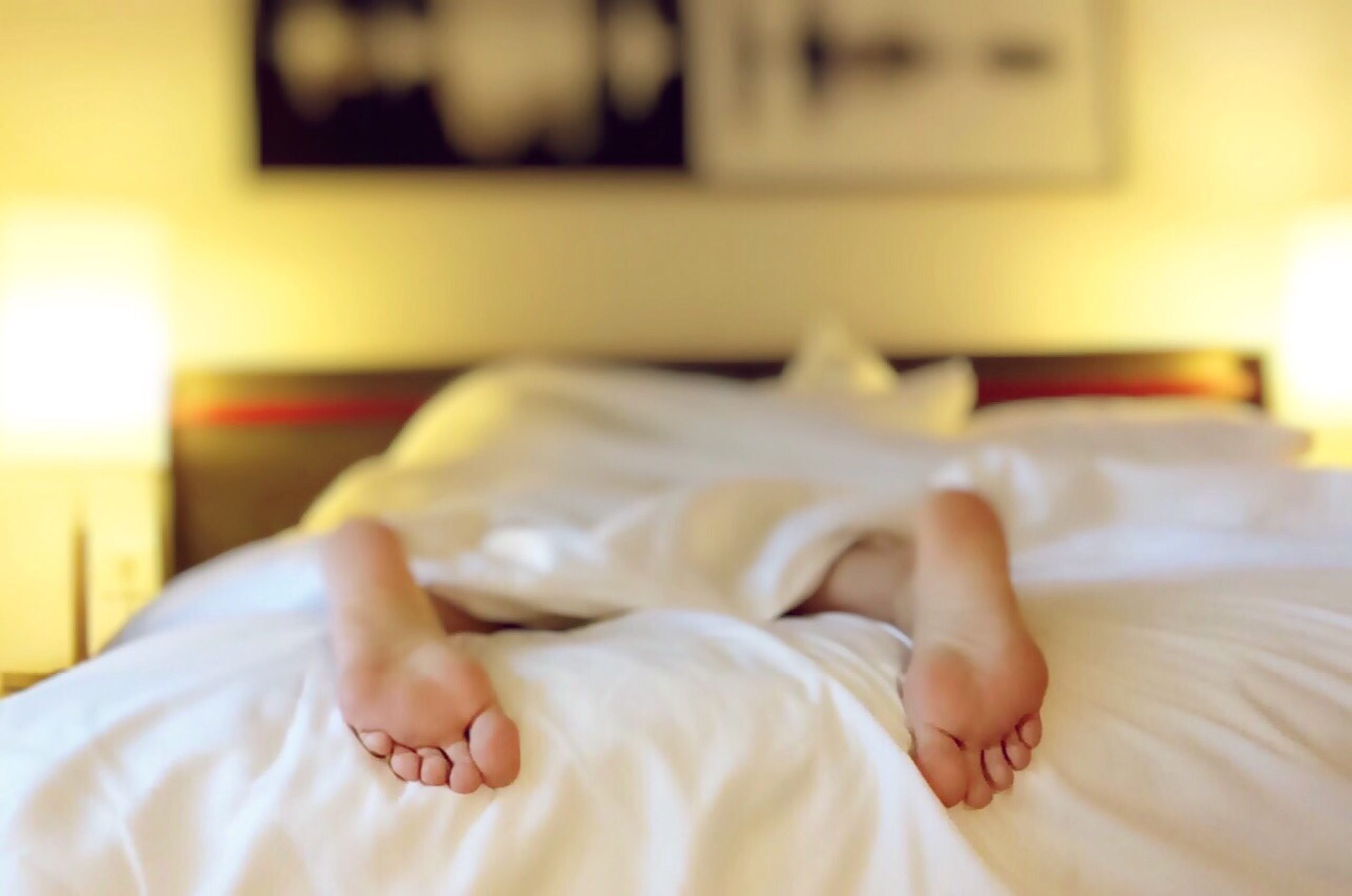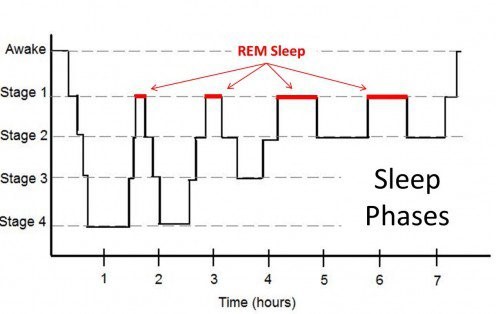
Make Sleep Hygiene as Routine as Brushing Your Teeth
Rebecca Wenrich Wheeler, MA, M.Ed. – Health Educator
Imagine you heard similar excuses for not brushing one’s teeth as you hear for inadequate sleep.
“I would brush my teeth, but I just have too much work to finish.” “No one in my family ever needed to brush their teeth much. It’s just genetic.” “Having my phone and computer in the bathroom doesn’t interfere with my brushing.”
Granted it only takes a few minutes in the morning and evening to brush your teeth, and sleep requires hours, but shouldn’t sleep warrant more attention? Sleep deprivation contributed to 72,000 automobile crashes in 2013 alone (“Drowsy Driving”, 2015). Sleep deficiency is a widespread public health concern. People in all age groups report sleeping difficulties, causing negative implications in all facets of daily life.
Before grappling with the topic of sleep deprivation, it is helpful to understand the processes of sleep. The sleep-wake cycle and circadian rhythm both influence the duration and quality of sleep. The sleep-wake cycle theory assumes that the longer someone is awake the sleepier he/she will eventually become, which is influenced by the release of the hormone melatonin. However, one’s own biological clock can work against the sleep-wake cycle (Spinks). For instance, have you ever stayed up late and experienced a “second wind,” increasing your alertness and making sleep even harder to find? Researchers have found that teenagers are especially prone to staying alert when they should be experiencing drowsiness. This phenomenon is called “phase-delay” (Spinks).
The human sleep cycle, which occurs in a regular pattern three to five times per night, takes about 90 minutes to complete (“What are Sleep”, 2012). The sleep cycle is divided into two major divisions: non-REM and REM sleep. Non-REM sleep includes deep slow-wave sleep. During this stage, it is very hard to wake a person. If your alarm goes off during slow-wave sleep, it will take longer to rouse you, or you may not hear the alarm at all. Over the course of the night, non-REM sleep decreases with each cycle, and REM sleep increases. REM sleep, or rapid-eye movement sleep, is characterized by vivid dreams. Since the sleep cycle ends with REM, if you wake up naturally, you would have done so at the end of a dream. During REM your muscles are actually immobile as to not act out your dream and possibly injure yourself, although your brain is teeming with neural activity (Myers, 2013).

Against popular beliefs, a person cannot make up sleep nor bank extra sleep when he/she anticipates a future period of sleep loss. “Nearly 40 percent of adults report unintentionally falling asleep during the day at least once a month,” and many of those adults do not recognize they are sleep deprived (“What are Sleep”, 2012).
What are some indicators a person is sleep deprived?
- Falling asleep at the wrong time of day.
- Yawning or blinking frequently during the day.
- Episodes of “microsleep.” (Brief periods of sleep when you should be awake. For instance, you might experience a lapse in time while driving and not remember you had driven for several miles.)
- Trouble focusing, learning, and reacting during the day.
- Difficulty with emotional control (“Why is Sleep”, 2012).
Understanding why the brain needs sleep has intrigued neuroscientists for decades. Evidence indicates that sleep plays a role in memory consolidation, but how this happens is yet to be determined (Winerman, 2006; “Sleep, Learning”, 2007). Consolidation is the stage between memory acquisition (initial learning) and recall. Slow-wave sleep seems to be crucial for processing declarative memories, fact-based information, and REM sleep facilitates consolidation of procedural memories, “how-to” memories (“Sleep, Learning”, 2007). When a person experiences sleep deprivation, he/she will suffer problems with memory recall. Additionally, “low-quality sleep and sleep deprivation also negatively impact mood, which has consequences for learning” (“Sleep, Learning”, 2007). Negative impacts on mood include difficulty controlling emotions and coping with change, as well as, depression and lack of motivation (“Why is Sleep”, 2012). Children and teens who are sleep deprived also exhibit anger, impulsivity, and difficulty getting along with others (“Why is Sleep”, 2012).
Sleep deficiency also impacts one’s ability to perform daily tasks. “People who are sleep deficient are less productive at work and school. They take longer to finish tasks, have a slower reaction time, and make more mistakes” (“Why is Sleep”, 2012). Decreased reaction time and attentional difficulties greatly impact driving skills in particular. Studies have shown that drowsiness impairs driving ability as much as being drunk (“Why is Sleep”, 2012). The CDC reports that approximately 1 in 25 adults, 18 and older, reported falling asleep at the wheel in the past 30 days (“Drowsy Driving”, 2015). Saying that you need adequate sleep is not a sign of weakness. It is rather quite the opposite, sleep is vital to our health and well-being. In general, adults need at least seven hours of sleep a day, and teens need at least nine (Spinks).
Even if poor sleep habits are commonplace in your life, it is never too late to establish a sleep hygiene routine. Begin to integrate the following tips for a healthier snooze. (Spinks; “Healthy Sleep”, 2014)
- Have a bedtime routine, even on weekends.
- Avoid “binge-sleeping” to catch up on sleep. This will only confuse your biological clock. Instead, you will get more benefits from sleeping an hour or two extra with your regular routine.
- Sleep in a cool, dark room.
- Turn off music, Internet, television, and other screens that will overstimulate the brain at least 30 minutes before bedtime.
- Do not use technology where you sleep.
- Dim the lights in the evening to encourage drowsiness and get a lot of daylight in the morning. This will help reset the biological clock.
- Those who regularly exercise report having better sleep than those who do not. However, try to exercise earlier in the day, rather than in the few hours before bedtime.
- If you do not fall asleep in 20 minutes, get out of bed and try a calming activity without using a screen (i.e. yoga exercises, coloring). Getting into bed when you are not sleepy will increase frustration.
Now turn off your electronic devices, brush your teeth, and get some sleep.

Interested in bringing this topic to your school or organization? The Poe Center’s #YouthCulture series, which is designed for parents, caregivers, and professionals who work with youth, addresses this topic among many others. Ask for the Adolescent Brain Development & the Role of Social Media module. #YouthCulture may be offered as a series or individual programs.
#YouthCulture
Grade Level: Adults Only | Program Length: 2 hour workshop
The Poe Center’s #YouthCulture program is designed to empower parents and guardians by providing insight into the environment and culture around our youth. This two-hour workshop explores how the developing adolescent brain shapes perceptions and behavior. All participants will receive a free packet of supportive materials and resources. Covered topics will include substance use, Internet safety, sexting, and healthy dating relationships. In addition we will explore ways to enhance parent-child communication.
Works Cited
Drowsy Driving: Asleep at the Wheel. (2015, November 05). Retrieved July 04, 2016.
Healthy Sleep Habits. (2014). Retrieved July 05, 2016.
Myers, D. G. (2013). Psychology (10th ed.). New York, NY: Worth.
Sleep, Learning, and Memory. (2007, December 18). Retrieved July 05, 2016.
Spinks, S., Adolescents and Sleep. Retrieved July 04, 2016.
What Are Sleep Deprivation and Deficiency? (2012, February 22). Retrieved July 05, 2016.
Why Is Sleep Important? (2012, February 22). Retrieved July 04, 2016.
